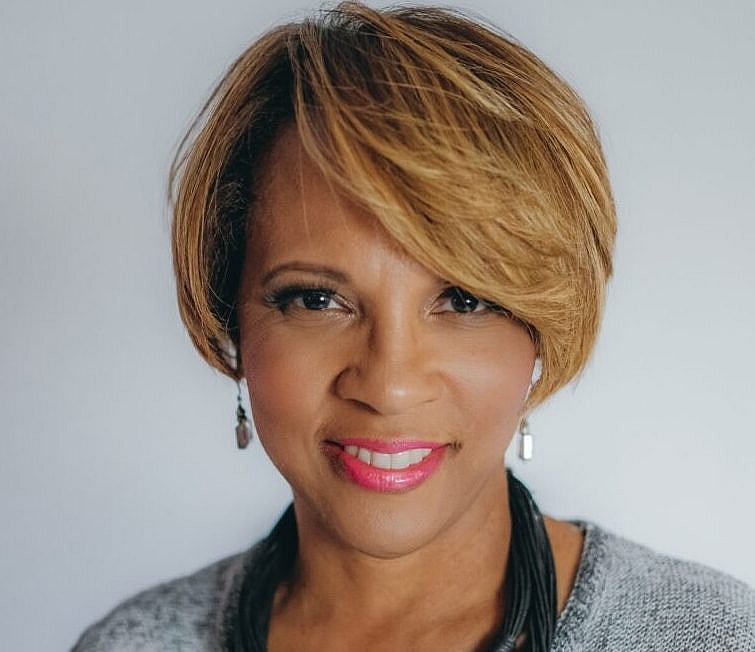“Some people are trying to deny what happened — to whitewash it,” Congressman Bennie Thompson (D-MS) said on Tuesday in his opening statement on his first day as chair of the House Select Committee investigating the Jan. 6 Capitol insurrection.
The testimony by four Capitol Hill police officers on Tuesday before the committee was riveting, raw, upsetting, and frankly damning about the state of America’s democracy. To be candid, I felt like I was having an out-of-body experience. It was hard to believe, as Republican committee member Rep. Adam Kinzinger spoke to the fact that the Capitol was not prepared for what happened on Jan. 6.
Fighting back tears during his questioning of the officers, Congressman Kinzinger later tweeted after his emotional statement, “We never imagined this could happen: an attack, by our own people, fostered and encouraged by those granted power through the very system they sought to overturn.”
But happen it did.
As the four officers recounted the horror of that day for them and their colleagues (as they engaged in what one called a “medieval battle” with Trump forces) the real focal point of the day for me and millions of Americans watching was the testimony of Black Capitol Police officer Harry Dunn. Dunn minced no words. On national television, he recounted the violence and vile racism of that day; informing the American public of how many times the N-word was hurled at him and other Black officers.
“You hear that guys, this n—– voted for Joe Biden,” Dunn recalled a woman in a pink MAGA shirt saying. The crowd of about 20 people, he said, screamed “boo f—ing n—–.”
After the insurrection came to an end, Officer Dunn recounted sitting down on a bench in the Capitol Rotunda with a fellow Black Capitol Police officer. “I told him about the racial slurs I endured and became very emotional and began yelling, ‘How the blank could something like this happen? Is this America?'” he said. “I began sobbing. Officers came over to console me.”
Officer Dunn’s harrowing testimony of racist abuse in the face of a violent insurrection is a glaring reminder of what we Black people already know; that while the Jan. 6 Capitol insurrection was about Trump’s legion of angry mobs attempting to overturn a legitimate election, it was also about their racism toward an America that is changing daily and becoming more inclusive, more Black, browner, and more racially diverse.
The Capitol insurrection was white anger on full display, just as we see with U.S. school board protests over the teaching of Nikole Hannah-Jones‘ 1619 Project or the new right-wing obsession with critical race theory. The pushback is open, hostile and unmistakable.
Perhaps the white rage of Jan. 6 all started to unravel and unfold in Charlottesville, Virginia back in 2017 as white nationalist men rallied in defense of Confederate monuments in jeopardy of being removed. The neo-Nazis chanted that Jewish Americans “will not replace us,” and their hate-filled demonstration ended in the murder of Heather Heyer, who was tragically killed by an enraged white nationalist who decided to drive his car into a crowd of anti-racist protesters.
But the violence of the Capitol insurrection goes back even farther to the horrific murders of nine Black churchgoers in Charleston in 2015 by the hands of white Nazi supporter and racist Dylan Roof.
Ultimately, though, the horrors of Jan. 6 fall at the feet of Donald Trump; we should have known that a day like Jan. 6, 2021 was inevitable. Looking back now, I can see so clearly that it was.
During his testimony, Officer Dunn appeared to emphasize the responsibility Trump and others had in what will forever go down as a day of infamy in American history — and the need for accountability.
“If a hitman is hired and he kills somebody, the hitman goes to jail. But not only does the hitman go to jail, but the person who hired them does. It was an attack carried out on Jan. 6 and a hitman sent them. I want you to get to the bottom of that,” said Dunn.

Officer Dunn’s testimony, however, crystallizes for me the finding in multiple polls and studies by AEI, PEW, Gallup and others over the past several years; that Trump supporters who express the most support for undermining our democracy, seceding from the union, or supporting confederate symbols, also express the most hostility to racial and cultural change (i.e., diversity, equity, inclusion, ridding the nation of confederate symbols and monuments). As much as we may want to deny it, the two are inextricably tied, and America must face this truth if we are ever to fix it.
At the end of the day, the reality of Jan. 6 is that racism was one of the fuels that lit the fire. White D.C. Metropolitan Police officer Daniel Hodges spoke to that truth during Tuesday’s committee hearing in which he revealed that rioters asked him, “Are you our brother?” as they hurled racial slurs at Black officers, and, instead, entreated Hodges to join their ill-fated cause.
Hodges called a thing a thing in naming the insurrectionists for what they were: white domestic terrorists. The question is will the rest of America join him, or will we continue down the path of denial about just how serious Jan. 6 was and how much danger we are in as we lead up to the 2022 and 2024 elections that it may happen again. Only if there is a next time, the mob could actually win and actually succeed in overthrowing the proper functions of this democracy.

Sophia A. Nelson is a contributing editor for theGrio. Nelson is a TV commentator and is the author of “The Woman Code: Powerful Keys to Unlock,” “Black Women Redefined.”
Have you subscribed to theGrio’s “Dear Culture” podcast? Download our newest episodes now!
TheGrio is now on Apple TV, Amazon Fire and Roku. Download theGrio.com today!


